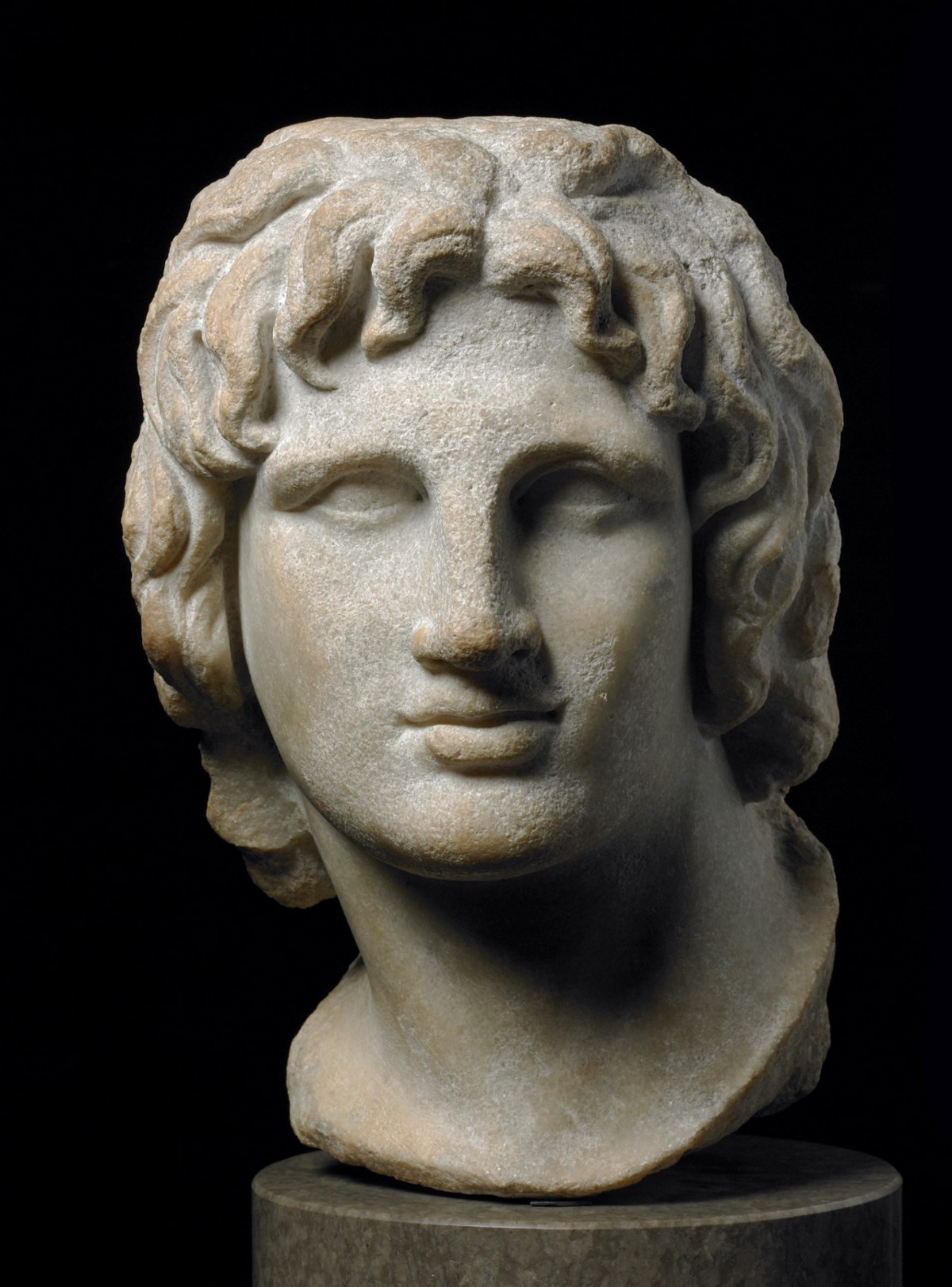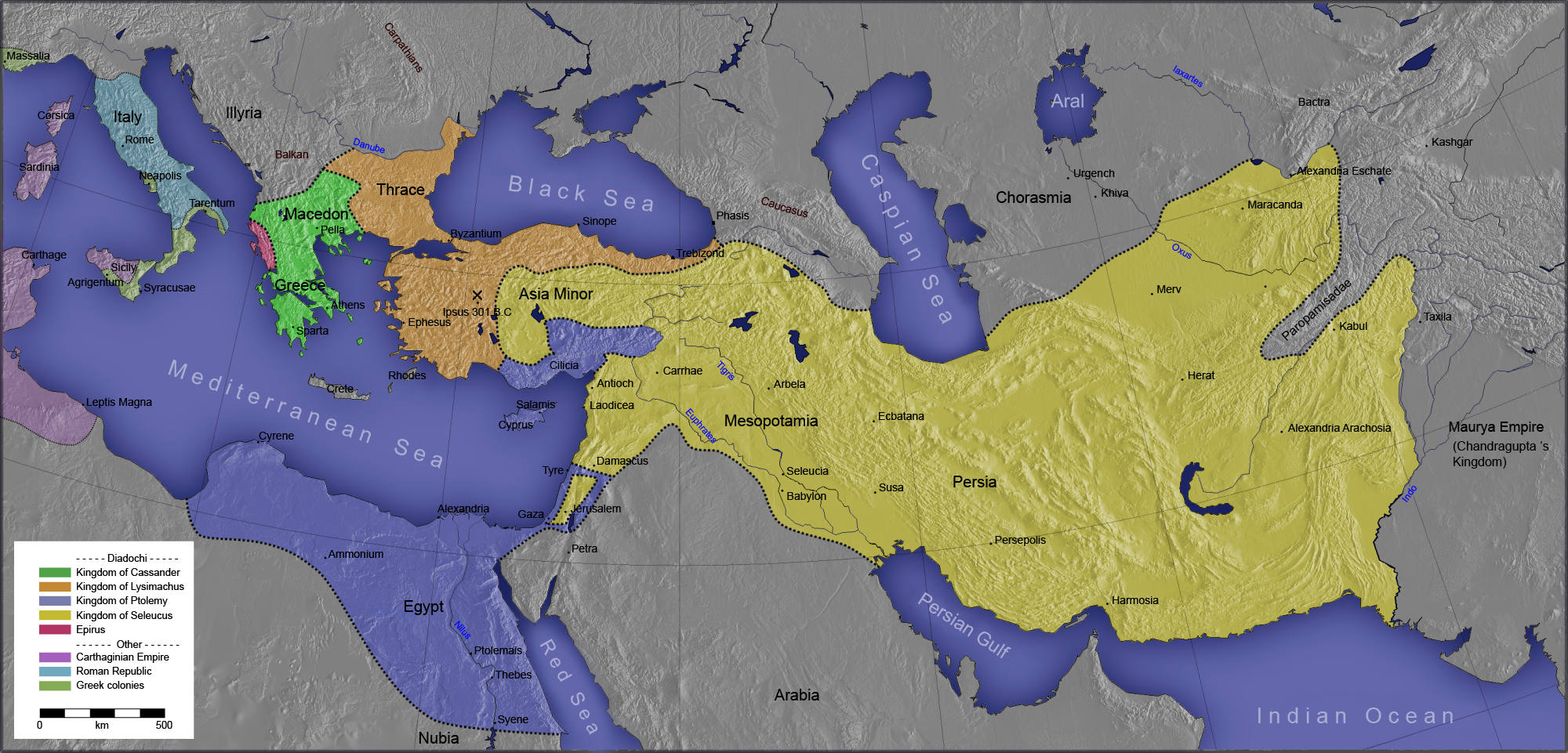Alexander III, son of Philip of Macedon, was at the age of 16 a pupil of Aristotle. As his pupil he would have heard of Plato. Philip was obsessed with conquering Persia, current-day Iran/Iraq, as a consequence of Persia conquering all the known world around 540 B.C. and into Greece around 480 B.C. (and in the process, as Cyrus passed through Babylon, freed the Hebrews taken 60 years earlier). Alexander fulfilled that obsession by taking it all back. In 336 B.C. he took Philips army across Anatolia (Turkey, 333 B.C.), the Levant (Syria and Israel, 332 B.C.), Egypt (331 B.C.), Persia (Iran/Iraq, 330 B.C.), into the northeast provinces (Afganistan/Pakistan, 329 B.C.) and into Punjab (western India and Tibet, 328 B.C.).

His army moved fast, and picked up many many warriors along the way. He did this by not being a cruel tyrant, but by opening trade in every land he conquered. His goal was not to tax, but to trade with everyone. Calm the land and open the trade routes. Teach everyone a simplified Greek (Koine Greek, common Greek), and let them govern themselves. Part of this was (probably, for this I have no proof) indoctrination into the Greek culture by bringing books with them, books like Aristotle's Meteorology and Plato's Timaeus. Books the Greeks told them to read so they could understand them. And read them they did. When alchemy was developed, it seem to spring from all parts of the old world:
It worked well. The conquered people never rebelled, and hundreds of years later, Hellenism (as we call it) was still intact.
Towns were founded to help with the trade routes. Alexandria, in Egypt, as a trade port. In fact, almost every area conquered had a new Alexandria. All were founded as classical Greek cities.
But revolt did come, from his generals. Alexander wasn't done. He wanted to go as far as China, but the troops were done. In the end Alexander settled down in Babylon, and died in Nebuchadnezzar's palace in 323 B.C., probably from foul play. The empire was willed to four generals: Ptolemy got Egypt, Seleucid got Mesopotamia and Central Asia, Attalid got Anatolia (Turkey) and the Levant (Syria/Israel), and Antigonid got Macedonia, the Greek homeland. Each ruled by his own standards.

Ptolemy's kingdom lasted the longest, and was the most generous. He funded huge libraries over his little empire, and Alexandria became the world center of learning. By decree any book brought into Alexandria was allowed to be copied for the library, but typically the copy was returned to the owner; the original stayed with the library. Books at the great library of Alexandria were copied for the other libraries around the Mediterranean, and famous men began to be identified by the city housing the library where they studied.
But it was at Alexandria that the most ideas met. And fused. And grew.